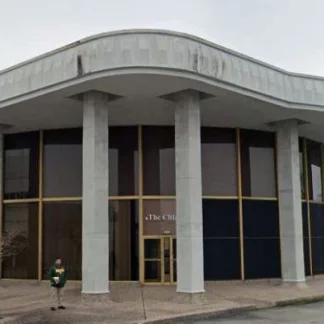DePelchin Childrens Center - Baytown
DePelchin Childrens Center – Baytown is a private rehab located in Baytown, Texa...
Cease Addiction Now offers outpatient treatment for individuals with alcohol and/or substance addiction. The program includes individual counselling, group therapy and more. Cease Addiction Now is located at Baytown, Texas.
Cease Addiction Now is compromised to provide comprehensive, integrated treatment in order to address mental health and substance addiction.
The program offers assistance with the following areas: spiritual, behavioral physical and mental. They provide individualized treatment for each client.
At Cease Addiction Now the substance abuse therapy involves addressing the use of a substance such as alcohol or drugs as a coping method. They offer different treatment methods such as: Narrative Therapy, Solution Focused Therapy and Psycho Education Therapy.
Contact us for more information: (281) 427-4226

Connect with Cease Addiction Now by calling their admissions team directly.
(281) 427-4226 Website Get DirectionsCognitive Behavioral Therapy (CBT) is a therapy modality that focuses on the relationship between one's thoughts, feelings, and behaviors. It is used to establish and allow for healthy responses to thoughts and feelings (instead of unhealthy responses, like using drugs or alcohol). CBT has been proven effective for recovering addicts of all kinds, and is used to strengthen a patient's own self-awareness and ability to self-regulate. CBT allows individuals to monitor their own emotional state, become more adept at communicating with others, and manage stress without needing to engage in substance abuse.
Group therapy is any therapeutic work that happens in a group (not one-on-one). There are a number of different group therapy modalities, including support groups, experiential therapy, psycho-education, and more. Group therapy involves treatment as well as processing interaction between group members.
In individual therapy, a patient meets one-on-one with a trained psychologist or counselor. Therapy is a pivotal part of effective substance abuse treatment, as it often covers root causes of addiction, including challenges faced by the patient in their social, family, and work/school life.
Group therapy is any therapeutic work that happens in a group (not one-on-one). There are a number of different group therapy modalities, including support groups, experiential therapy, psycho-education, and more. Group therapy involves treatment as well as processing interaction between group members.
In individual therapy, a patient meets one-on-one with a trained psychologist or counselor. Therapy is a pivotal part of effective substance abuse treatment, as it often covers root causes of addiction, including challenges faced by the patient in their social, family, and work/school life.
In individual therapy, a patient meets one-on-one with a trained psychologist or counselor. Therapy is a pivotal part of effective substance abuse treatment, as it often covers root causes of addiction, including challenges faced by the patient in their social, family, and work/school life.
DePelchin Childrens Center – Baytown is a private rehab located in Baytown, Texa...
Unlimited Visions Aftercare is located in Baytown, Texas. Unlimited Visions Afte...
Memorial Hermann Prevention and Recovery Center - North Main Street is an alcoho...
Baytown District Office is a private rehab located in Baytown, Texas. Baytown Di...